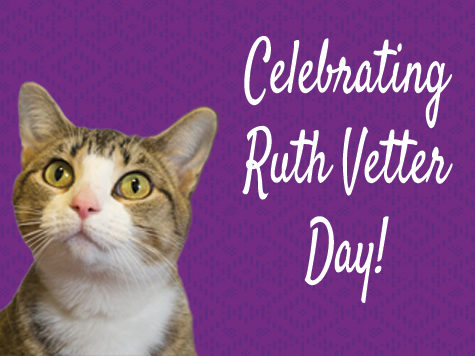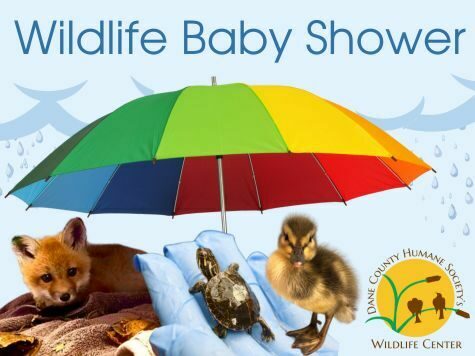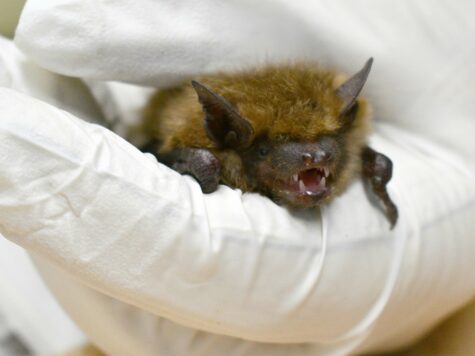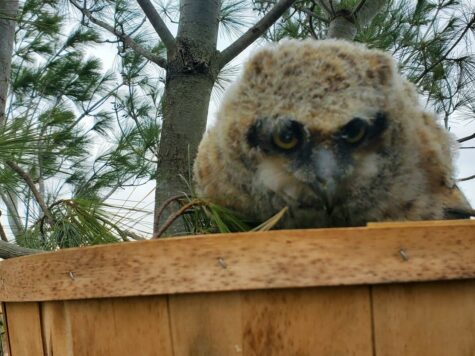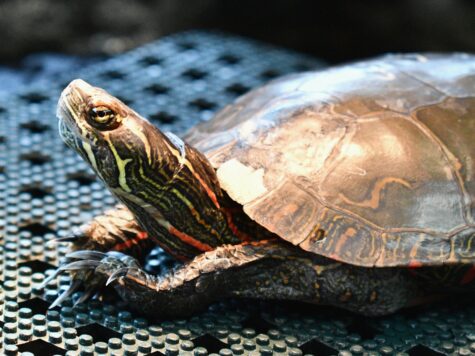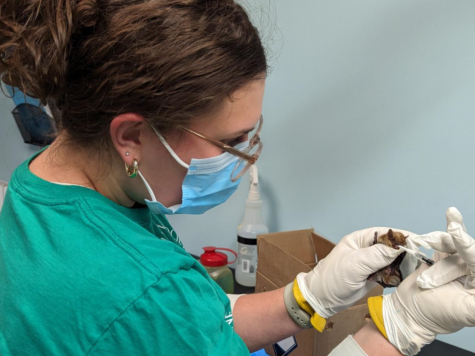UPDATE ON NOVEMBER 6TH, 2023:
Bobcat #23-1033, formerly known as DCHS’s Wildlife Center’s first-ever bobkitten, was successfully released back into her home territory of Mazomanie, WI on October 18th. This kitten was admitted to DCHS as an orphan in early July and spent her first two weeks receiving medical care and support from our wildlife team.
As soon as she was stable, staff made connections around the state to see if any other facilities also had bobkittens of a similar age. Wild Instincts in Rhinelander, WI had three others that she could join, and they graciously accepted ours as a fourth. Over the next three months, their rehabilitators integrated her into the litter so that she could live and socialize like a bobcat and learn natural behaviors. As she grew older, bigger, and more solitary, she was ready for independence.
As part of a special Directors' Council event, supporters gathered to watch her bound away to her forever home. Watch the video of the bobcat's release:
Special Species Alert: Bobkitten Admitted
Dane County Humane Society’s Wildlife Center admitted a unique patient on July 7th, 2023—a bobkitten! Thanks to your support, we can be ready for the variety of orphaned, injured, or sick native wildlife who need our licensed rehabilitators. Bobcats are a fairly common wild cat in the state of Wisconsin, but they are rarely seen by people. They hunt mostly at night, looking for rabbits, small mammals, and deer. Populations are more concentrated in the state's northern counties and have been tracked historically as part of radio-collaring and monitoring studies to research their movements over the landscape. Bobcats typically reproduce in the spring months, most often in March or April, and average 2 to 4 kittens per litter. Adults are solitary, except during reproduction, and females stay with their young at least until their kittens reach independence, often a full year. DCHS’s Wildlife Center has only seen a handful of adults come through for rehabilitation since our program started in 2002, but we have never before had a bobkitten in our facility. However, there’s a first time for everything, and this feisty feline has been the highlight of our program for 2023 so far! |

We admitted our first-ever bobkitten on Friday, July 7! This baby bobcat (patient number 1,033 for the year) was found as an orphan near Mazomanie, Wisconsin. Wildlife Veterinary Technician Erin Lemley examined her on arrival and estimates her age to be 9-10 weeks old, but no older than 16 weeks, based on her size, weight, and dentition (condition of the teeth). On admission, she was thin and dehydrated, very hungry, and full of burrs stuck all over her fur. It’s likely she had been separated from her family for at least a couple days. After intake and diagnostics, she was treated with fluids, nutritional support, and grooming under sedation to remove the burrs.
With a few days of rest and food, she is clearly feeling better and is already acting like a spit-fire! She isn’t your typical “house cat” – she is a wild felid who demands respect. This bobkitten is angry and vocal, hissing and swatting at people who come anywhere close to her cage. We can hear her munching on food after the evening feeding time and have found her exploring large parts of her cage. Staff have taken this as a message, “Thanks for the food and a clean cage, but go away now, please.” This is exactly the behavior we want and would expect from a wild bobkitten.

It is important to raise orphan bobcats with others of their species, so DCHS’s Wildlife Center may look to transfer her soon. There are only a few rehabilitators in the state licensed to work with bobcats, but if this bobkitten can find a group of other orphans to join, she would be slowly integrated into the existing litter and kept until she is ready for release. At that point, the final step would be to send her back to DCHS’s Wildlife Center so that our staff, interns, and volunteers can be part of her release. The goal is to complete her rehabilitation and get her back to her home territory, as close as possible to her original rescue location.
Since the start of the Covid-19 pandemic in 2020, the rehabilitation of bobcats has been banned by the DNR. This year, the DNR has allowed rehabilitation to resume, pending an approved biosecurity protocol application from a licensed rehabilitator and facility. DCHS’s Wildlife Center worked diligently to meet the necessary biosecurity standards and received approval in June to resume this critical work – just in time to be able to save this bobkitten!
You make stories like this possible!
Our Wildlife Center is 100% funded by the generosity of our community. The Wildlife Center does not receive any government funding, and we do not charge members of the public who bring wild animals in for care. Our rehabilitators need to be ready at a moment’s notice to care for over 200 native animal species. Donations from folks like YOU provide the rehabilitators and care these animals need.
Please consider making a one-time donation, becoming a Constant Companion by giving monthly, including DCHS when creating your legacy plans, or support the funding for a second Wildlife Apprentice this fall.

